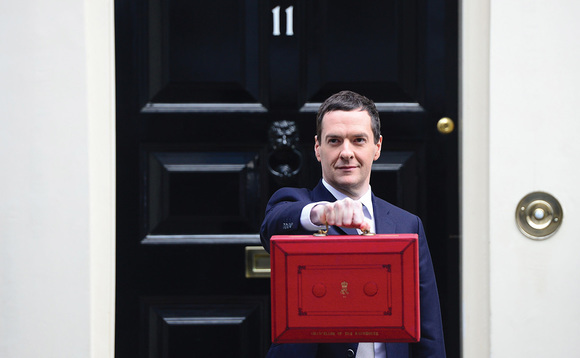
UK Budget 2015: PE industry spared from tax clampdown

The UK private equity community can breathe a sigh of relief – not only did the 2015 Budget refrain from ushering sweeping changes to the fiscal framework, but it also contained several announcements that should ultimately benefit the industry. Alice Murray reports
It is hardly surprising that in his pre-election budget, chancellor of the exchequer George Osborne spent the bulk of his announcement focusing on the UK's recovery, highlighting recent growth by his use of the catchphrase "Britain – the comeback country".
In one of the most politically charged budgets on record, the UK private equity industry held its breath as Osborne outlined plans for government spending and reforms to the tax regime. With private equity having been picked up in the autumn statement as an area to receive more attention, many industry practitioners expected the budget to detail crackdowns on the taxation of management fees that are rolled into performance fees.
The budget, however, was devoid of any mention, let alone changes, to the industry's treatment of tax. The relief was almost audible in the BVCA's reaction to the budget, which went on to celebrate other areas in which the association had succeeded in ‘sharing its views'.
First was stimulating investment and growth in the north of the country. The chancellor announced that 100% of business rates generated in Manchester will be retained in the city, in order to give the north-west more fiscal authority. This follows on from the Growth Deal, which was extended earlier this year and saw the government invest a total of £532.6m in Manchester. Osborne also said increased devolution is expected to be awarded to Cambridge, and that his door is open for other cities to apply.
Furthermore, the VCT industry was celebrating as the Budget announced hefty extensions to both EIS and VCT schemes – rising from £15m to £20m for knowledge-intensive companies, as well as an increase in employee numbers for eligible companies from 250 to 499.
Knock-on effect
Other wider-reaching measures are also likely to benefit private equity in some way. First was the promise to support increased exports to China. While this might not appear to be a pressing issue, given the continued economic difficulties faced throughout Europe, the fact the UK government is actively looking to support export-driven businesses can be seen as positive – particularly for portfolio companies looking east to fuel their growth.
As well as attempting to rebalance the UK economy through Growth Deals and devolution, the chancellor also outlined huge cash injections into various regions across the UK to ensure the country's continued competitiveness. This includes a £60m investment to the Midlands for new energy research and a £100m investment into the automotive industry to boost driverless technology and low-emission vehicles.
Furthermore, private equity managers with exposure to the North Sea oil and gas industry will be relieved at new measures introduced to battle falling oil prices, which Osborne described as a "pressing danger to the North Sea industry". Starting next month, businesses operating in the North Sea will be awarded tax allowances to stimulate investment. The supplementary charge will be cut, while petroleum revenue tax will be reduced from 50% to 35%. Furthermore, the government will undertake seismic surveys to review the area's oil producing capacity. The chancellor says this amounts to £1.3bn of support and, according to the Office of Budget Responsibility, will boost North Sea oil output by 15%.
In his closing remarks, Osborne was entirely upbeat about both how the UK economy has recovered and its outlook: "This budget reflects an economy moving from austerity to prosperity. Optimism is returning, Britain is returning. Britain – the comeback country," he claimed.
Unsurprisingly, opposition leader Ed Miliband highlighted in his response that alternative asset classes were notably absent from the statement, and accused hedge funds of bankrolling the Conservatives. While private equity was clearly spared in this budget, there is no guarantee that the industry won't become a political football over the next 50 days.
Whatever the eventual impact this budget has on the upcoming election, the UK's impressive growth over the past year – the highest of any developed economy – and its forecast growth in coming years (between 2.4% and 2.3%) should, in all likelihood, translate to continued optimism, increasing spend and sustained investment.
Latest News
Stonehage Fleming raises USD 130m for largest fund to date, eyes 2024 programme
Sponsor acquired the public software group in July 2017 via the same-year vintage Partners Group Global Value 2017
Stonehage Fleming raises USD 130m for largest fund to date, eyes 2024 programme
Czech Republic-headquartered family office is targeting DACH and CEE region deals
Stonehage Fleming raises USD 130m for largest fund to date, eyes 2024 programme
Ex-Rocket Internet leader Bettina Curtze joins Swiss VC firm as partner and CFO
Stonehage Fleming raises USD 130m for largest fund to date, eyes 2024 programme
Estonia-registered VC could bolster LP base with fresh capital from funds-of-funds or pension funds









